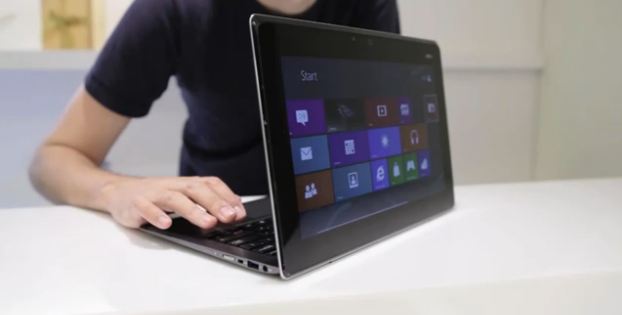
Windows 8 just got cooler: Asus unveils 'Taichi' dual-screen ultrabook
At Computex 2012 in Taipei, Taiwanese PC maker Asus unveiled a new Windows 8 ultrabook design that features a full-sized HD IPS touchscreen display on the "lid" portion of the device. This second screen allows the device to be used as a tablet when the lid is closed, or as a presentation/screen-sharing tool when it is open.
The Asus Taichi is currently a working design, and Asus says the specs are not yet finalized. However, the company says the Taichi will be available in both 11.6” and 13.3” profiles, will have third generation Intel Core processors with 4 GB of DDR3 memory, and an undisclosed amount of SSD-based storage.
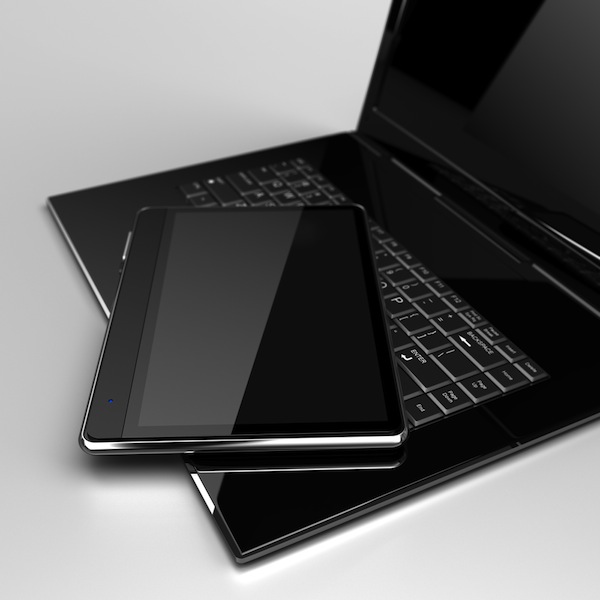
Laptops and tablets are on a high-speed collision course
As tablets become more popular among consumers, our functionality requirements also increase. The rise of this sector contributes to the blurring of the lines between notebooks and tablets, says NPD's Ross Rubin. Things will only get murkier when Windows 8 releases later this year, its Metro interface built with touchscreen interfaces in mind.
NPD and Rubin see the entire industry encroaching on one another's turf. Android has found its way onto dual-boot devices like ViewSonic's Viewpad tablet. On the flipside, Windows 8 makes it enticing for manufacturers to add tablet-like features as the OS was built with mobile in mind.

March Madness: Win an Ultrabook
BetaNews is pleased to be a media sponsor of Newegg's March Mania Ultrabook-a-Day Giveaway, starting today and going for 21. Each day the tech retailer, in cooperation with Intel, will award one lucky winner an Acer Aspire S3-951-6646, ASUS Zenbook UX21E-DH52 or Lenovo IdeaPad U300s Ultrabook.
Why just watch March Madness when you can get a little crazy trying to win one of these sleek Ultrabooks?
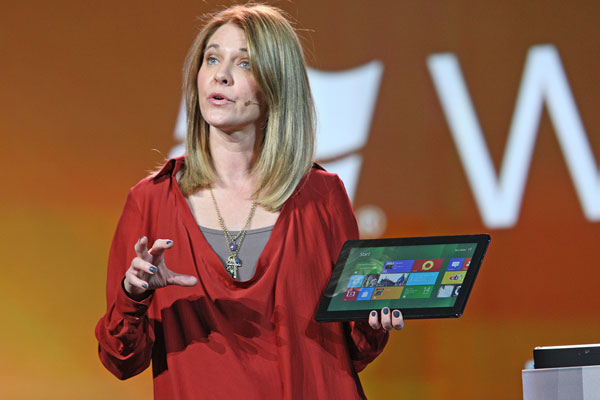
Only Windows 8 can save the PC market now
Three days ago, near the end of his last Consumer Electronics Show keynote, Microsoft CEO Steve Ballmer boomed: "There's nothing more important at Microsoft than Windows". He better mean it, because the Windows PC is in big trouble. Fourth-quarter US personal computer sales were outright disastrous, while overall 2011 global growth was the worst since 2001. Recession that year devastated PC shipments, despite Windows XP's late-year launch.
There is no single reason for weak shipments during fourth quarter, when holiday sales typically give PCs a boost: Economic crisis in Europe, hard drive shortages following flooding in Thailand and weak demand among consumers, among others. There is a convergence of factors -- a cascading effect that disproportionately affects Windows PCs compared to Macs. On the Windows side, only Lenovo has proved immune. Apple meanwhile continues to sell Macs hand over fist, as they say, while Windows is at risk.
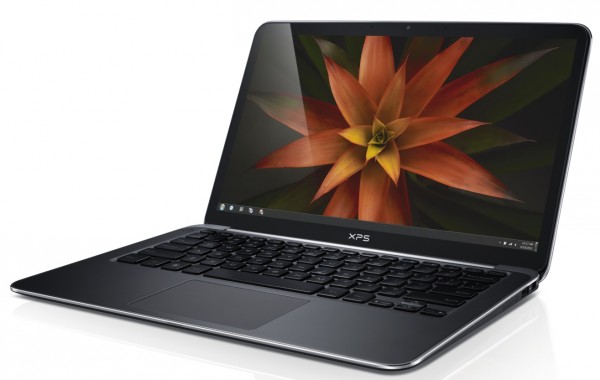
Dell gives more ultrabook in smaller body
As expected, Dell has joined the ultrabook foray, announcing the XPS 13 at Consumer Electronics Show 2012. Thin and lights aren't new for Dell, but joining the announce-now-and-ship-later CES crowd is disappointing. As a build-to-order maker, Dell is known for shipping right away. If you want an XPS 13, however, the Round Rock, Texas PC maker will make you wait until the "end of February".
The XPS 13 inherits from its predecessors, like the XPS 14: The screen is edge-to-edge, allowing for a larger display in a smaller enclosure. Dell boasts a 13.3-inch screen in the size of an 11.6-inch portable, claiming the frameless display reduces XPS 13's footprint by 15 percent compared to comparable 13.3-inch laptops. Looking at the product photo, I don't see how the screen is any more frameless than Apple's MacBook Air.
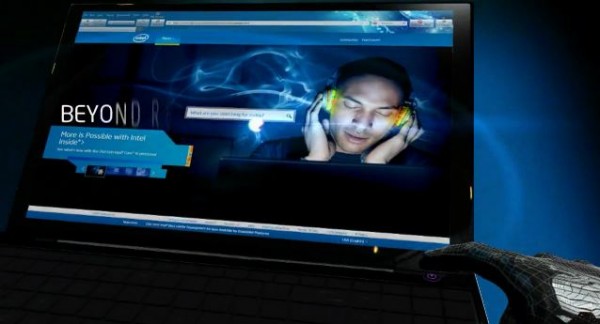
Are ultrabooks really the best value?
It's time for the Consumer Electronics Show, where ultrabooks already are making a big splash. A question arises that deserves consideration. Is this the end for netbooks? Will ultrabooks make them obsolete?
I can't answer this and we will have to wait and see, but consider this: Every time a new generation of electronics comes out the new features are exciting, but as usual selling prices tend to be higher. Prices range between $849 and $999. Sure, there are those who have no problem dropping as much as a $1,000 for the latest gadget. But for the average person, selling price matters. Many people choose between features and price and often price will win out in the balance between cost versus features. I am a programmer, yet I have always lived on a tight budget and tend to buy what is more in line with what I can afford rather than the bleeding edge devices. Simply put: I look for what's good enough within my budget.
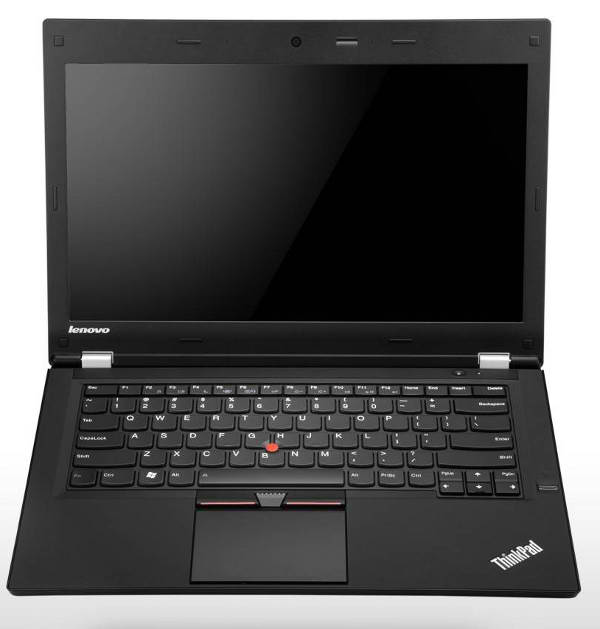
Ultrabooks creep out in advance of CES 2012
We're just a few days away from another installment of the annual International Consumer Electronics Show, where thousands of companies from all over the world come to show off their wares for the new year.
One of the device types everyone is expecting to see a lot of this year is the Ultrabook, or the ultra thin and light notebook class that Intel classified just about nine months ago.
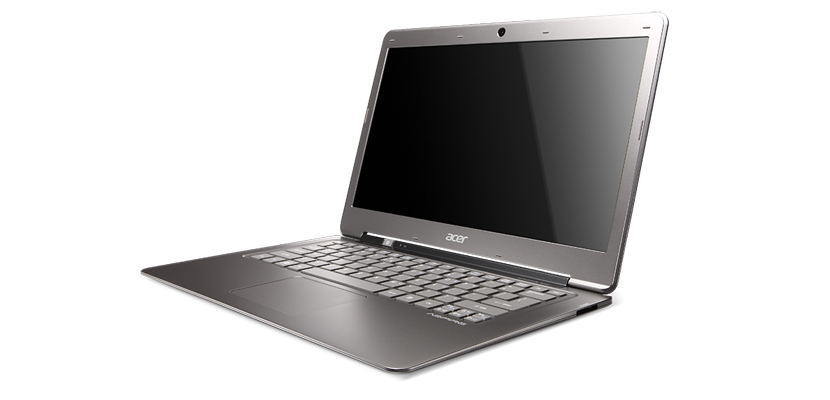
Can Ultrabooks halt Acer's continuing decline?
Acer Inc, the world's fourth-largest personal computer maker, is shifting gears slightly after nearly a full year of unprofitability.
In an interview with Dow Jones yesterday, Acer CEO J.T. Wang said the company is moving away from the low-cost strategy to one more focused on profit margins.
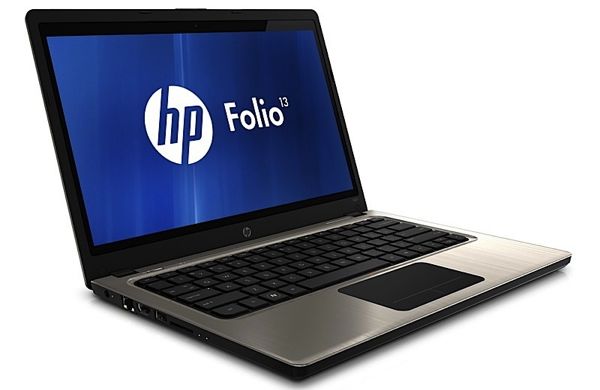
HP debuts thin and light Folio 13 ultrabook
The ultrabook. It's a weak name for a compelling notebook design class that has been gaining popularity for a little over two years.
On Wednesday, still-in-the-PC-business Hewlett-Packard announced its contribution to the ultrabook class will be a business-focused model called the HP Folio 13.
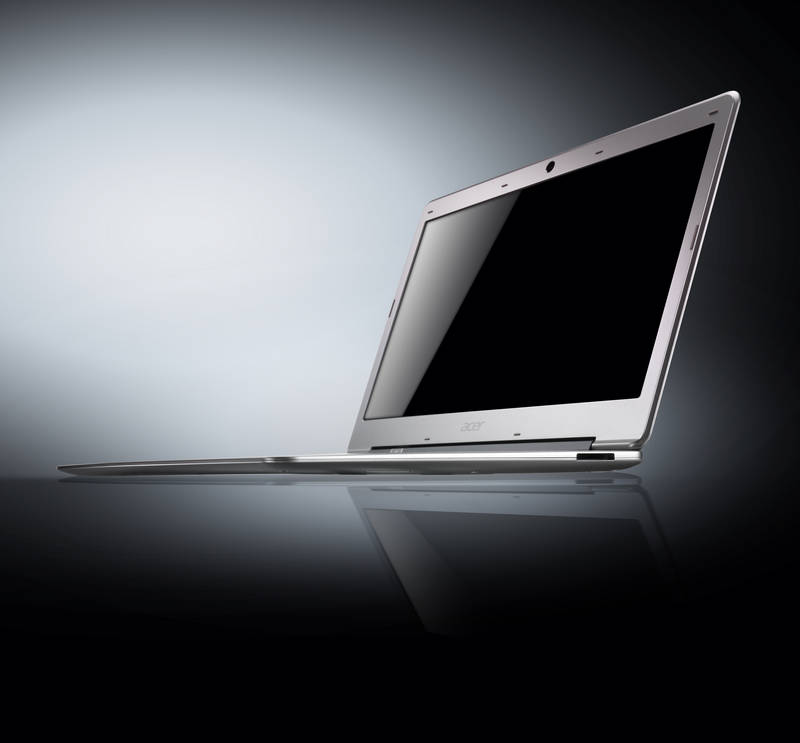
Acer launches its first super skinny ultrabook in America
Acer's American arm announced on Monday that the brand's first thin-and-light ultrabook, the Aspire S3, has landed in North America, and it will be available for $899.
In addition to being Acer's first ultrabook, The Aspire S3-951 is the first ultrabook that has both an HDD for storage and an SSD integrated into the main board for instant on capabilities.
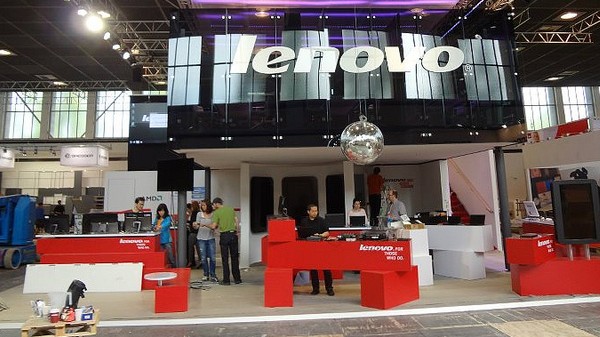
Lenovo Ultrabook moves in on MacBook Air's turf
Aiming to fight Apple's MacBook Air on one of its primary advantages -- its size -- Lenovo on Thursday introduced its Ultrabook, claiming it is thinner than Apple's signature ultra-thin laptop.
Indeed, at .6-inches thick, the Lenovo Ultrabook U300S comes in slightly thinner than the Air's .68 inches. The laptop is part of a broader effort introduced by Intel in May to revive interest in laptops overall. The chipmaker is rightly worried about tablets, a device category Intel does not have a strong foothold in. Thus pushing these ultra-thin laptops has become a major part of its current business strategy.

Ultrabook can't beat MacBook Air pricing
Intel has a big problem, and senior executives know it. Ultrabooks running its processors and Windows cannot compete with MacBook Air on price. There's a strange offing coming, when Macs, which for so long cost more than Windows PCs, will be the value choice -- that's assuming Apple chooses to pass savings on to customers rather than be extra greedy about margins.
Wintel OEMs can't compete on price because Apple realizes cost advantages inherent to its end-to-end development, manufacturing and distribution model. These smaller powerhouse laptops aren't cheap to produce, but it's two secret ingredients in Apple's recipe that will prove decisive.
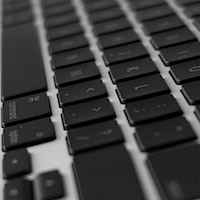
What if Apple released $799 MacBook Air?
Rumors about an impending MacBook Air refresh engulfed the web this month. If you believe them, Apple is poised to make the thin-and-light laptop its flagship portable. Oh yeah? So why not grab some market share, too, by lowering the price where mere mortals could afford to buy one? With Intel bringing on UltraBook as clear MacBook Air competitor, it's reasonable to wonder about Apple's response.
I asked two analysts, Roger Kay and Stephen Baker, for their response to the headline's question, but I was more interested in Baker's opinion. In the past, he strongly advocated Apple releasing a $799 Mac.
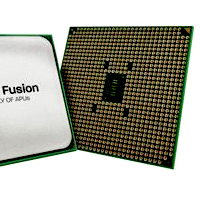
AMD APU ignites new chip war with Intel
Let the mobile device wars begin. Like AMD and Intel battled for desktop chip dominance in the 1990s and Noughties -- the megahertz and gigahertz wars -- mobile devices are their new territory. But instead of speed, the new marketing mantra is longer battery life, lower power consumption and better graphics capabilities. Following last month's Intel announcements for Ultrabook and "Medfield" processors, today AMD jumped in with Accelerated Processing Units (APUs).
The nomenclature makes me think of some wonky, scifi "B" movie or George Orwellian-like novel. But AMD's APU pitch is something more monumental.
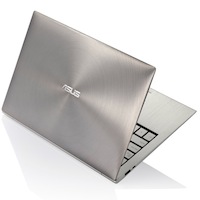
What's the big deal about Intel Ultrabook?
With the new Ultrabook, Intel seeks to bring together the best qualities of laptops with those of tablets. It's an evolution long-time coming. Finally, near Instant-On and all-day battery life capabilities may reach the masses.
Wake on Resume?
